Ecosystems: Interactions, Energy, and Dynamics
-
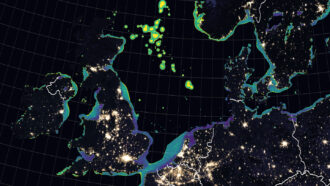 Oceans
OceansNight lights make even the seas bright
Light from coastal cities and offshore development may shine deep enough to disrupt tiny critters living dozens of meters (yards) below the surface.
-
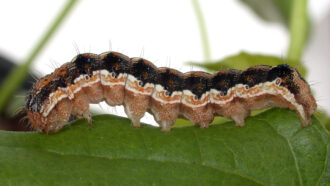 Animals
AnimalsInfected caterpillars become zombies that climb to their deaths
By tampering with genes involved in vision, a virus can send caterpillars on a doomed quest for sunlight.
By Jake Buehler -
 Environment
EnvironmentPonds made to control floods can spew climate-warming gases, study finds
Younger stormwater ponds can release more carbon in gases than they absorb, a study finds. That could aggravate global warming.
-
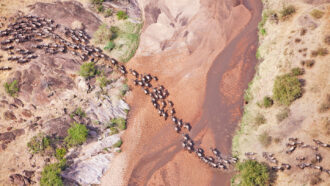 Animals
AnimalsScientists Say: Migration
Migration involves the movement of animals or people from one place to another.
-
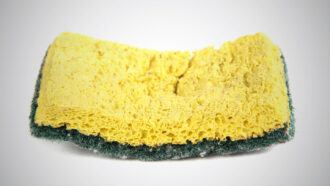 Microbes
MicrobesKitchen sponges are bacteria’s dream home
Sponges are favorite spots for bacteria, partly because of the mixed-housing environment that the cleaner-uppers offer microbes.
By Anna Gibbs -
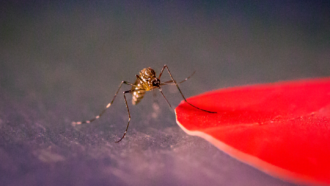 Animals
AnimalsMosquitoes see red, which may be why they find us so appealing
Mosquitoes not only see colors, but also prefer certain ones, such as the hues of human skin.
By Laura Allen -
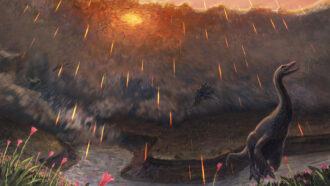 Animals
AnimalsThe end of the dinosaurs appears to have come in springtime
Fish fossils from North Dakota suggest when the Chicxulub asteroid devastated Earth, triggering the mass extinction of dinosaurs and other species.
By Sid Perkins -
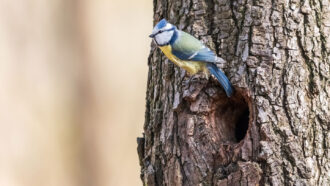 Animals
AnimalsAnalyze This: Birds may decorate nests to scare off rivals
Birds that nest in holes face stiff competition for nest sites. Some use feathers, also found where predators have made a kill, to keep rivals away.
-
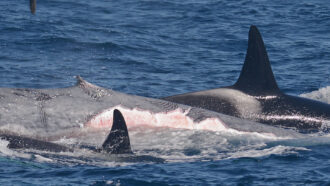 Animals
AnimalsOrcas can take down the largest animal on the planet
For the first time, scientists observed that orcas can kill blue whales by using the same hunting techniques that have worked on other large whales.
By Anna Gibbs -
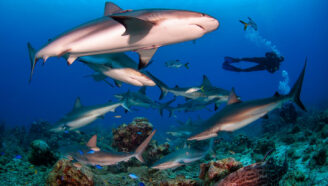 Life
LifeExplainer: What is an endangered species?
Threats such as climate change and habitat loss can put species at risk of going extinct. Different words describe that risk.
-
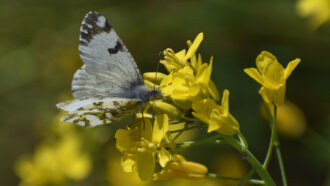 Environment
EnvironmentBees and butterflies struggle to find flowers in polluted air
Emissions from cars and trucks make it harder for insects to find flowers. That in turn reduces flower visits and pollination, a new study finds.
By Laura Allen -
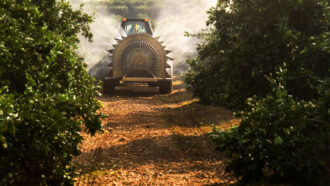 Environment
EnvironmentWidely used pesticides may threaten Earth’s ozone layer
Data show a major class of long-used “eco-friendly” copper chemicals unexpectedly react with soil, making gases harmful to Earth’s protective ozone layer.